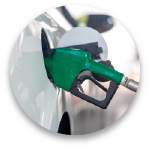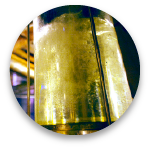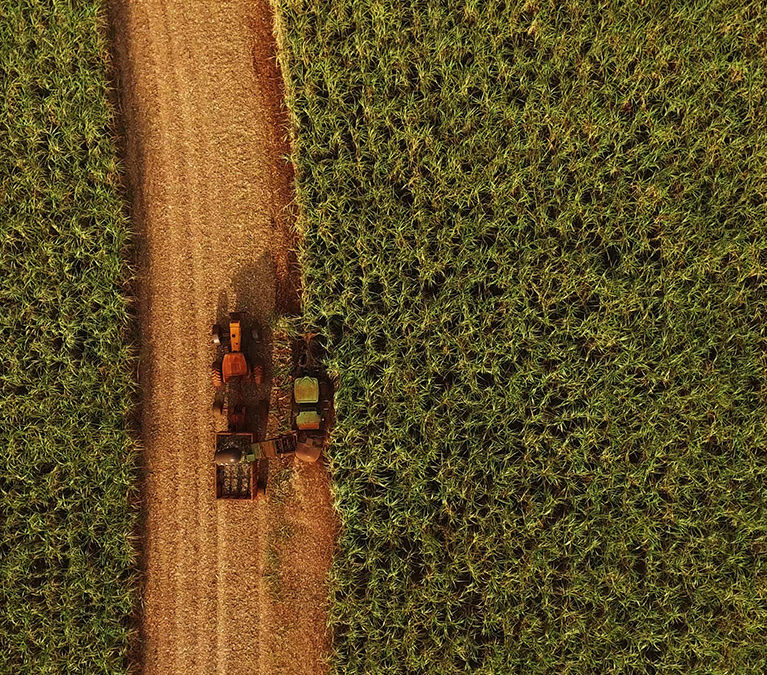ETHANOL
Brazil is the world’s largest sugarcane ethanol producer and a pioneer in using ethanol as a motor fuel. In 2023-2024, Brazilian ethanol production reached 35.9 billion liters. Most of this production is absorbed by the domestic market where it is sold as either pure ethanol fuel (E100) or blended with gasoline (E27).
![]() Sugarcane ethanol is an alcohol-based fuel produced by the fermentation of sugarcane juice and molasses. Because it is a clean, affordable and low-carbon biofuel, sugarcane ethanol has emerged as a leading renewable fuel for the transportation sector.
Sugarcane ethanol is an alcohol-based fuel produced by the fermentation of sugarcane juice and molasses. Because it is a clean, affordable and low-carbon biofuel, sugarcane ethanol has emerged as a leading renewable fuel for the transportation sector.
Ethanol contributes to decarbonizing transport in two ways:

Blended with gasoline

Pure
BENEFITS
Ethanol adds oxygen to gasoline which helps reduce air pollution and harmful tailpipe emissions. Ethanol also reduces Greenhouse Gas (GHG) emissions by up to 90% when compared to fossil fuels, performing better than any other liquid biofuel produced today on a commercial scale.
Beyond its positive environmental impact, ethanol can also enhance a vehicle’s performance. It is a high-octane fuel that generates more power in higher compression engines.
Available now, ethanol helps to reduce global dependence on fossil fuels and can be used to diversify a country’s energy matrix.
OVER
2.5 bi
barrels of gasoline substituted between 1975 and 2023 in Brazil
Biofuels
are central to Brazil’s low carbon emission strategy
Per capita GDP rise of
USD 1,098
in Brazilian cities where
ethanol is produced
BRAZIL: A LEADER IN ETHANOL
PRODUCTION AND USE
Brazil has achieved greater energy security thanks to both a competitive sugarcane industry and policies that make ethanol a key part of its energy matrix. In 2023, Brazil replaced 44% of its gasoline needs with sugarcane ethanol.
Towards Decarbonization of Liquid Fuel in Japan
Japan has announced its plans to introduce E10 bending by 2030, as a strategy to decarbonize its transport sector.
News

New Blog Post : “Towards Decarbonization of Liquid Fuel in Japan ” by Mr. Yoshihiko Omori
New blog post on our website, authored by Mr. Yoshiko Omori, Director at the Institute of Energy Economics, Japan (IEEJ).

Sugarcane harvest for the first half of June 2025
Sugar production reached 2.45 million tons in the first half of June 2025, while ethanol production reached 1.78 billion liters.
